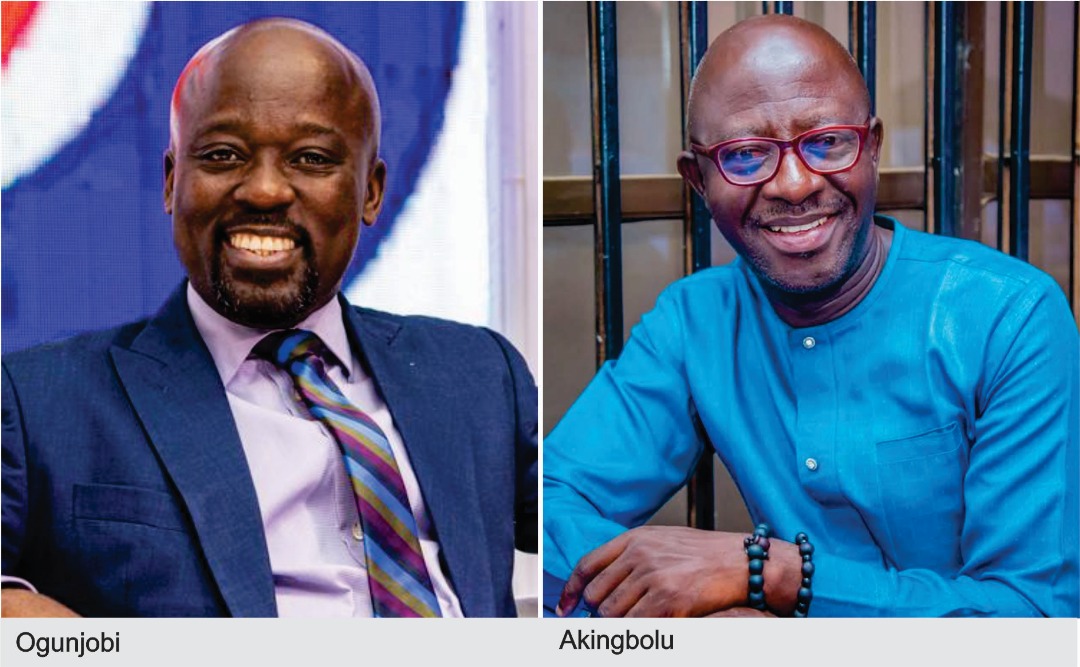By Zion Rufus
As businesses in Nigeria continue to grapple with challenges of skill shortages and brain drain, industry stakeholders are urging the advancement and adoption of the Igbo Apprenticeship business model (IAS) as a means to enhance talent development, skill management, and innovation in the field of marketing communications while fostering economic growth and development.
The IAS, a time-honored communal enterprising framework which has produced notable successes such as Innocent Chukwuma of Innoson Motors, Ifeanyi Ubah of Capital Oil & Gas, and Cosmas Maduka of Coscharis Group, nurtures talent and allows individuals to gain practical skills and knowledge through hands-on experience.
Particularly in a world increasingly focused on redefining capitalism and embracing more inclusive economic systems, professionals and businesses have recognized the potential of adopting elements of the IAS in the marketing communications industry.
In 2021, Hero premium lager, a product of International Breweries offered N50 million worth of seed capital to promote the IAS.
According to the company, the initiative was aimed at encouraging resilience, hard work, and the persistent nature of Nigeria’s youths by catalyzing their journey to independence and entrepreneurship success through mentorship, grants, and business advisory.
In recent times, experts have also agreed that by expanding internships, upskilling undergraduate youths, and focusing on talent development, the sector could empower a new generation of marketers and communicators.
Such initiatives, they noted, are expected to address skill shortages, reduce unemployment rates, stimulate economic growth, mentorship and skill development through direct training and apprenticeships. They also argued that the adoption of this system will help businesses bridge the gap between theoretical education and practical application, producing more competent professionals.
“While the apprenticeship system might not directly address the “Japa” syndrome, it could significantly enhance the competencies of job seekers. For instance, if I were to undergo an apprenticeship in a particular area, the skills acquired could be effectively transferred to a different location, thereby contributing to a pool of more adaptable and employable individuals,” said Dr Ndidi Nwaneri, public policy and social development consultant and visiting scholar at Loyola University in Chicago in a conversation with MARKETING EDGE.
“Japa Syndrome”, a catchphrase for unbridled migration by desperate Nigerians seeking better living conditions in foreign countries hit an all time high in 2023 as more youths left the country in droves, resulting in a huge shortage of skilled workers in Nigeria.
Speaking further, Dr. Nwaneri revealed that embracing stakeholder capitalism also has the capacity to allure and retain top-tier talent, as professionals are naturally drawn to enterprises that prioritize their well-being and professional advancement. She noted that consequently, this can result in heightened levels of employee contentment, ingenuity, and overall effectiveness.
Validating Nwaneri’s viewpoint, Ekenedilichukwu Ugbachie, Business&Client Services Manager, Dashboard Innovations Ltd believes that the adoption of stakeholder capitalism within sectors such as business and marketing communications holds immense potential for bolstering Nigeria’s economic growth and development.
According to Ugbachie, by giving precedence to the concerns of diverse stakeholders, which encompass employees, customers, and the local community, businesses can establish a sustainable and robust environment that fosters innovation and efficiency.
He said “As businesses prosper and local talents are nurtured, the broader economy reaps the rewards through an upsurge in employment opportunities, enhanced skill sets, and a more resilient foundation for enduring growth.”
Of similar position is Helen Akue, a renowned business analyst who also suggests that the adoption of stakeholder capitalism in sectors such as business and marketing communications will significantly contribute to Nigeria’s economic growth and development.
“By prioritizing the interests of various stakeholders, including employees, customers, and the local community, businesses can create a sustainable and resilient ecosystem that drives innovation and productivity. Furthermore, stakeholder capitalism can attract and retain top talent, as professionals are drawn to companies that prioritize their well-being and professional growth,” Akue added, noting that it can in turn, lead to higher levels of employee satisfaction, creativity, and overall productivity.
Rooted in the belief that everyone should have opportunities, the IAS has been a cornerstone of the Igbo culture for centuries. Successful businesses in this system develop others and offer capital, customers, and support to new businesses. By relinquishing market share, these businesses promote an environment of equal opportunity, where all members of the community can thrive.
“Among other benefits, it will mitigate the shortfall in talent across industries, reduce unemployment rate and stimulate an all round economic growth,” Daniel Chukwu, Digital Lead, Yellow Brick Road Lagos, stated.
“It will also provide valuable avenues for practical skill development and knowledge transfer from experienced entrepreneurs to the next generation of business owners. This perpetuates a cycle of economic growth and expertise within the community. More than that, it will also create a society where everyone is economically empowered through systemic redistribution of wealth,” he added.
The IAS not only bolsters competition by introducing new players to various sectors but also fosters a mindset shift in value creation, transcending financial metrics to encompass community and family sustainability. It aligns with the philosophy of ubuntu, emphasizing shared bonds and interconnectedness among humanity.
“IAS improves competition by making it possible to bring new players in a sector, benefiting customers. It brings a new mindset on value creation, going beyond financials to include sustaining communities and families. More so, it creates wealth for everyone. Largely, the Igbo apprenticeship system is a practical demonstration of the ubuntu philosophy,” Ndubuisi Ekekwe, Chairman of Tekedia Capital noted in a Harvard Business Review report.
— “the belief in a universal bond of sharing that connects all humanity.” It may not be scored high when benchmarked on some Western business and economic frameworks, but for the Igbos and some Africans, it is a working system which has brought equality and peaceful coexistence in communities, making sure that no one leaves his or her brethren behind. Those are the evidential ideals of stakeholder capitalism,” he stated.
Inspired by Steve Biko’s vision of collaborative problem-solving, Robert Neuwirth, who discussed Adam Smith’s book on the wealth of nations during a TEDGlobal conference in 2018, advocated for promoting and scaling sharing models to uplift communities, bringing fairness and infrastructure to foster self-led development.
Neuwirth proposed a thought experiment, imagining how Smith’s ideas would apply to Africa. He referenced Ibn Battuta’s observations of a prosperous market in Mogadishu, highlighting a sharing economy where locals acted as brokers for merchant ships. Neuwirth suggested that this sharing principle persisted in unexpected places like Alaba International Market, where merchants support each other’s growth. He emphasized the existence of two forms of capitalism, one benefiting a small elite and the other struggling at the grassroots level.
However, While the IAS has demonstrated its effectiveness as a business model, challenges and concerns have been raised.
Some experts suggest that the system could benefit from reforms to protect young apprentices from potential abuses. The formalization of contracts and involvement of government authorities have been proposed to maintain fairness and uphold agreements.
Akue highlights shifting the mindset of businesses and stakeholders accustomed to traditional profit-focused approaches as one of the major challenges of the IAS.
“Convincing them of the long-term advantages of stakeholder capitalism, including enhanced reputation, customer loyalty, and employee satisfaction, may require significant efforts in education and awareness,” she said.
To address these challenges, Akue recommends a multi-pronged approach.
“This could involve comprehensive stakeholder engagement, targeted educational initiatives, incentives for businesses embracing stakeholder capitalism, and the establishment of platforms for sharing success stories and best practices. By actively addressing these challenges, Nigeria can unlock the transformative potential of stakeholder capitalism and drive positive economic and societal outcomes,” she advised.
Dr. Nwaneri also highlighted barriers such as adapting the apprenticeship style to modern industries and the need for government involvement to protect human rights and facilitate expansion. She suggested learning from successful mentors in the system and promoting a hybrid approach to enhance education and practical skills.






Comment
No comments found.